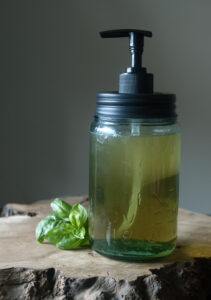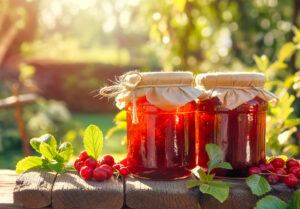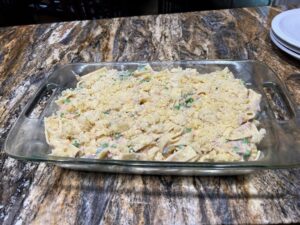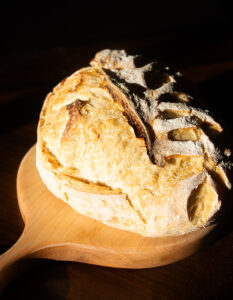
Picture winter in your mind. For most of us, the picture probably starts with pretty snow landscapes and snowmen, hot chocolate, and warm fires. As you think more, the picture changes. You start thinking about dry skin, cold temperatures, shoveling snow, tight waistbands, runny noses, and blah moods. While adding the right foods to your winter diet won’t shovel your walk, they can help with many of the things that winter does to our bodies that we don’t like.
Want to avoid the winter blues? Try oatmeal. Sunlight signals your body to create the feel-good hormone serotonin so the short supply of sunlight in the winter may leave you in a dreary mood. Whole grain foods can give your winter mood a boost. A MIT study found that eating plenty of carbohydrates keeps up your levels of serotonin and can prevent sweets cravings. Avoid refined carbs, which will give you the quick boost you want but the crash will leave you feeling worse. Other good choices are whole wheat bread, brown rice, whole grain cereals, and fruit. (If you find yourself suffering from severe seasonal depression, you may have Seasonal Affective Disorder (SAD), and should consider medical help.)
Food Solutions For Dry Skin
Nobody likes feeling like a snake that’s about to shed in the winter but did you know that you can help fight really dry skin with what you put into your body? Try eating omega-3 rich foods like walnuts

. The winter months bring drier air, like frigid winds and indoor heating, which can suck the moisture out of your skin. This leaves it dull, tight, and itchy. Moisturizer helps on the outside but you have to attack from the inside too. Omega-3 fatty acids help maintain healthy cell membranes, including skin cells. Strong skin cells are better able to retain moisture and will help you feel smooth, not scaly. Other good skin-saving food choices are salmon, flaxseed, olive oil, and tuna.
Its always been my thought that we get sick more often in the winter because our bodies are putting so much energy into staying warm and don’t have much left over. There are foods that can help your body out. Garlic has been known to help ward off colds and flu (and this time of year, garlic is supposed to help with more!). Countless studies and research have been done on the ability of garlic to help the immune system. While there are many explanations, one explanation of the chemical in garlic called allicin makes sense. Allicin may stimulate the production of infection-fighting white blood cells. Adding garlic to your meals may help you stay well, but use it in moderation because you just want to keeps diseases at bay, not everybody else. Other good virus-blasting foods are carrots, yogurt, and oysters.

One of the worst parts of winter is knowing that spring is on its way and your extra winter insulation will see the light of day when you start shedding those layers. Adding fiber-rich foods, like winter squash, to your winter diet (and year round) will help you prevent that hated winter weight gain. A 2006 study found that people who routinely ate more fiber than the national average, about 14 grams per day, were less likely to be overweight than those who didn’t. Fiber-rich foods are relatively low calorie and are digested more slowly so you feel full longer. This is a very important defense against the “season of overindulgenceâ€, otherwise known as winter. Winter squash varieties have about 9 grams of fiber per one-cup serving and it is also loaded with carotenes, which have been shown to reduce the risk of a variety of diseases. If you’re not a big squash fan, like me, you can also try artichokes, raspberries, whole grains, and legumes.

Feeling kind of sluggish? Eat a chicken sandwich. The shorter days of winter mean less hours of sunlight and darkness signals your body to produce melatonin, the hormone responsible for making you sleepy. Eating the combination of complex carbohydrates and some protein can help you stay awake and feel energized. A chicken sandwich on whole wheat bread or a whole-wheat roll boosts your energy in two ways because your body digests the complex carbs slowly, which keeps your blood sugar stable, and the protein helps you stay fuller, longer. Other good energy-boosting combinations are peanut butter on whole grain bread, Greek yogurt with fruit, and whole grain crackers with low-fat cheese.
You know that you have to leave the best for last so here it is. Chicken noodle soup has been the go-to winter food for ages. This soup has long been touted the best remedy for colds and flu, and it really can help. Hot liquids temporarily clear your sinuses and a study at the University of Nebraska found that it may even reduce inflammation in your nose and throat. Most chicken noodle soups are low in calories and saturated fats, and high in fiber. Homemade chicken noodle soup is wonderful because you can add what you want but if homemade isn’t an option, read your labels to avoid high sodium levels and calories. Other great foods to help clear away that stuffy nose are tea, coffee, and any broth-based soup.
I love winter, (except when it gets really,really, cold), but it can be hard on your body and mind. Take care of yourself. Eat well, and mindfully. Get creative, research foods, and read labels. Cold weather doesn’t last forever!































